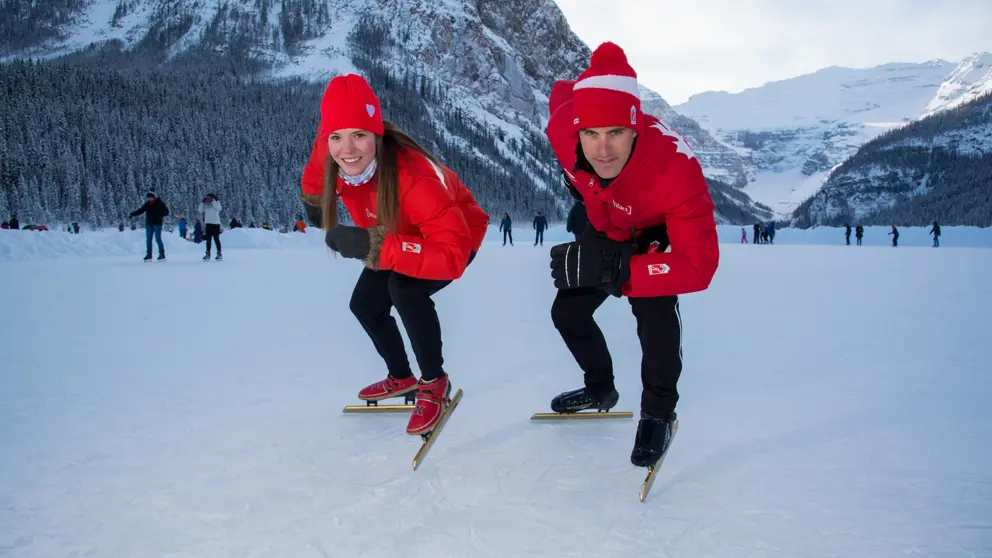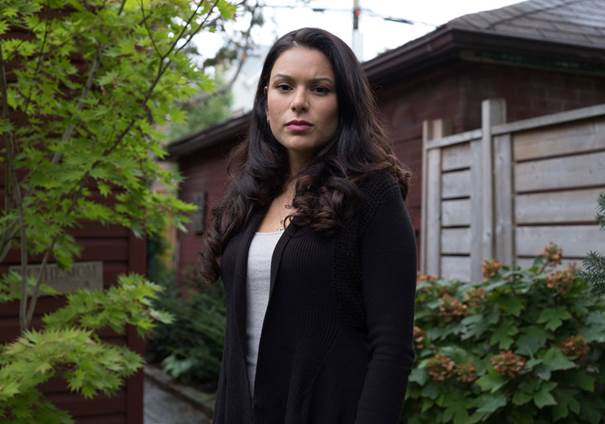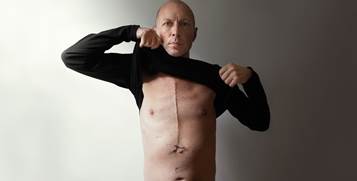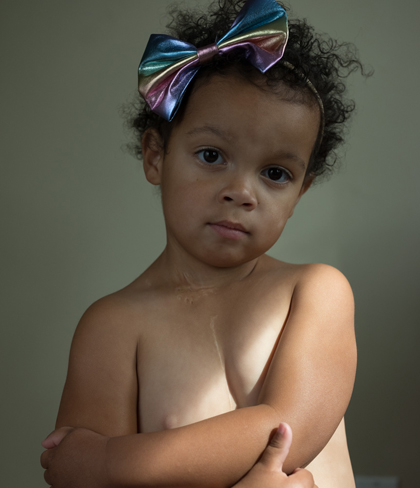It was clear that Denny Morrison wasn’t himself. The four-time Olympian could effortlessly balance on a one-millimetre wide blade while skating at 60 kilometres an hour. But now he could barely keep his flip-flop on his foot. Soon, he was slurring his words.
He was at a highway rest stop in Utah with his then girlfriend and teammate, Josie Spence. They were driving home to Calgary after biking the Arizona Trail. Denny didn’t know what was happening to him — or that it could soon be a matter of life and death. Luckily, Josie recognized that he was having a stroke.
She messaged the medical manager of the Canadian speed skating team. He told her Denny needed to get to a hospital immediately.
That was in 2016, just a year after a devastating motorcycle crash. During Denny’s recovery from the stroke, Denny and Josie got married, and both went on to qualify for and compete in the 2018 Olympics in South Korea.
Denny retired from amateur sports in early 2020 as one of the most decorated long-track skaters in Canadian history.
The 35-year-old shared with Heart & Stroke how he dealt with recovery, and his plans for the future.
Is there a moment from your stroke journey that sticks out for you?
When I was having a stroke, Josie held my hand and told me that everything was going to be okay. She was right — once again demonstrating why I call her my guardian angel.

"Josie said everything would be okay. She was right."
As a competitive athlete, you may not have considered yourself at risk for stroke.
I used to think stroke, that's something that happens to old people. My doctors believe the motorcycle crash a year earlier created an environment in my otherwise healthy body to develop a stroke. I didn't know the implications of stroke and how it can affect your brain and your mood long-term.
How did it affect you?
It definitely affected my mental state. It made me question things, and question who I am. It made me wonder if I was a different person because I felt people treated me a bit differently. There were some really challenging times. And it was a new lesson for me in patience and humility.
How did you approach your recovery?
When I was in the hospital after my stroke, the nurses made me touch my nose and then touch their finger, which they move around. I wasn’t very good at it. As soon as the nurse left the room, I said to Josie, “OK, I need to practice this.” She helped me with that and with so many other things during my recovery, after saving my life from the stroke itself.
So your athletic training influenced the way you tackled stroke.
Athletes do mental training, so I decided to use one of those techniques and “MAC” it: that stands for mindfulness, acceptance, commitment. I tried to be mindful of how I was feeling and what my assets were. I accepted the negative emotions as well as the small victories. And I committed to what I wanted to do. We use that in speed skating, and it helped me in my recovery from stroke.
The bigger lesson was my understanding that to achieve individual goals you need to work as a team. Josie helped me, I helped her, and together we qualified for the 2018 Olympics.

During Denny’s recovery, Denny and Josie got married, and both went on to compete in the 2018 Olympics.
What were some of the challenges you went through?
With the stroke, I sometimes grappled with not being sure what the problem was. I wasn’t physically hurt, which would have been easier to understand. The stroke slowed me down — not ideal for a speed skater.
For example, I did an interview a month or two after my stroke. At the time I thought I was thinking and speaking normally. But when I watch the interview now, I can see I was really slowed down. With Josie’s help, I was able to accept that and stay committed to pursuing my goals.
What’s going on with you now?
After five years, I’ve accepted what is. The process of recovering to compete at my fourth Olympics helped reinforce the importance of staying committed through the arduous process of achieving whatever future goal I choose.
I'm inspired to learn new things that will keep moving me forward, and I’m also inspired to give back as much as I can. So, I recently applied to medical schools across Canada. I would love to one day reintegrate myself into sport from a new angle and combine my passion to help others with my passion for sport.
- Learn the signs of stroke.
- See what your donations can do.



